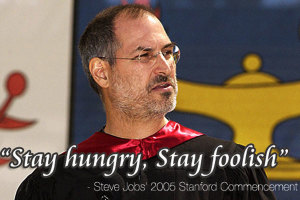Effective leadership takes time, intentionality, purpose and strategy. It also means making the choice to create margin in your life. Just like a well-written, typed paper needs margin around the edges to be a source of communication and efficiency, leaders need margin in their lives to perform at peak levels. But leaders are often driven, which can result in schedules crammed with meetings, tasks and busyness.
Have you created margin in your life so that you have the reserve you need to accomplish the goals you have for yourself and your team? How do you create that margin? Here are 10 suggestions:
- Get enough sleep. When leaders don’t get enough sleep, they are more likely to react badly and make poor decisions. Sleep equates to better decisions and a clearer vision for what is important. Without enough sleep, we waste the extra time we might have making up for poor decisions. Sleep is vital.
- Pay attention to your energy levels. Each of us have different energy levels throughout our days depending on our personalities, schedules and body composition. Knowing when you are more and less energetic can be a strategic factor in creating margin. If you find that you are more productive in the morning, it is smart to schedule your important tasks and meetings then. If you find your energy wanes every day around 2 pm, make a decision to plan an activity that will boost your energy or give you rest.
- Know your productive seasons. In the same way that each of us have different energy levels during the day, we each have more productive seasons than others. Winter can be more difficult for some. The month of May is often a busy time with kids in school. Knowing your productivity highs and lows throughout the year will allow you to plan margin in your life effectively.
- Give yourself 15 extra minutes. If you are not an early morning person, it is difficult to follow through with the decision to get up earlier each day in order to get more accomplished. But many people who don’t get up early find themselves rushed and stressed. So instead of getting up early, start giving yourself 15 minutes for tasks throughout your day. Arrive fifteen minutes early for meetings so you can give yourself extra mental energy. Plan for an extra fifteen minutes at the end of meetings so you can wrap up your notes and next action steps.
- Do some meal planning on the weekends. Meal planning can take time out of your schedule that could be used in other more productive ways. So take time on the weekend and plan out some meals, do some early preparation and freeze some meals. This will create extra time during your week that could be quite valuable to the margin in your life.
- Keep a time limit on your social media activities. Being active on social media is important for a leader, especially a business leader. But social media can also prove to be a black hole that eats up valuable time for work and for margin in your life. Set a time limit on your social media activities and begin each session with work priorities. Connect with friends and colleagues next, but when your time limit is over, shut it down. Margin is often consumed with mindless activities that profit us little.
- Solitude. We live in a world of noise and people and chatter. Choosing to make solitude a priority in your life centers your mind, body and spirit in a way that will bring a healthy perspective to everything. Margin is often birthed in the freedom that solitude brings.
- Nap. There is extensive research that says that a 30-minute power nap in the middle of your day can rejuvenate you. Choosing to rest creates much needed margin.
- Learn the difference between a concern and a responsibility. When we find ourselves concerned about a particular thing, we are worried or anxious about it. When we have a responsibility, we have an actual duty and obligation to do something for someone or something. Margin is naturally created when you don’t waste time on concerns. As a leader, you need to fulfill your responsibilities. Concerns can be energy wasters because you often do not have the authority or ability to change it simply by being concerned about it.
- Learn to say NO. The best way to create margin is not to overextend yourself.
Start creating margin in your life today so that you can be the most effective and most balanced leader you can be.
Sources:
http://rubiconn.com/choosing-to-create-margin-in-your-life/
http://www.toodarnhappy.com/2012/03/19/5-ways-to-create-margin-in-your-life/
http://www.sean-johnson.com/why-you-need-more-margin-in-your-life/





